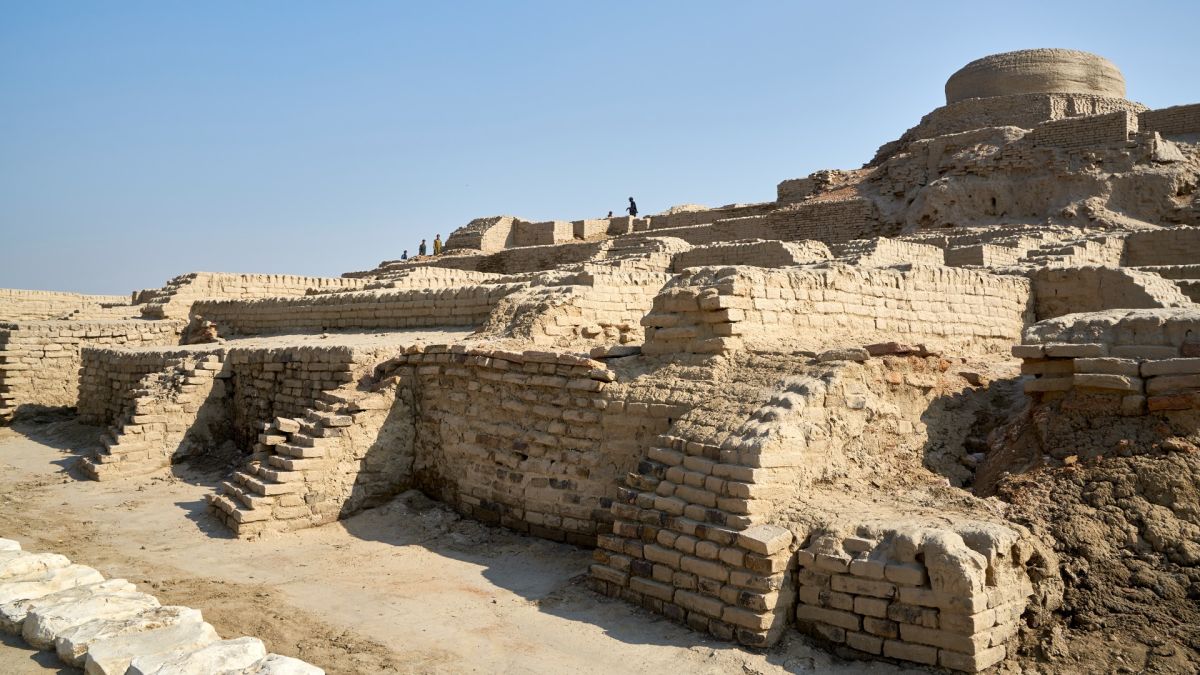Anthropology
Related: About this forumNew evidence suggests Harappan civilisation is 7,000 to 8,000 years' old
Last edited Fri Dec 22, 2023, 08:10 AM - Edit history (2)
By
Dheeraj Bengrut
Dec 22, 2023 05:38 AM IST
The discovery has been made during the third phase of excavations carried out by the ASI along with various teams across the country

The first phase of excavations at Rakhigarhi was carried out by Dr Amarendra Nath of the Indian Archaeology Department from 1997 to 2000 during which evidence of the North Harappan culture dating back to 2500 BC was found. (HT PHOTO)
Researchers from Deccan College Pune along with the Central Archaeological Survey of India (ASI) have established that human remains discovered at an ancient site of Rakhigarhi – a village in the Hisar district of Haryana – date back around 8,000 years. The discovery has been made during the third phase of excavations carried out by the ASI along with various teams across the country, including researchers from Deccan College Pune.
The first phase of excavations at Rakhigarhi was carried out by Dr Amarendra Nath of the Indian Archaeology Department from 1997 to 2000 during which evidence of the North Harappan culture dating back to 2500 BC was found. The second phase of excavations at Rakhi Garhi was carried out by professor Vasant Shinde from Deccan College Pune from 2006 to 2013 during which Shinde’s team collected evidence and conducted DNA tests to establish that this culture could be over 4,000 years’ old. Over the past two years, the ASI and Deccan College Pune have jointly carried out the third phase of excavations at Rakhigarhi through a team led by ASI joint director Sanjay Kumar Manjul and Deccan College Pune assistant professor Prabhodh Shirwalkar.
Shirwalkar said, “There are three parts to the Harappan culture; East Harappan, Middle Harappan, and North Harappan (Modern). The earlier two excavations found evidence of the Middle and Modern Harappan cultures dating back around 4,000 years. But now, the evidence found in the third phase of excavations shows that the culture dates back 7,000 to 8,000 years. The final report of the work is being prepared by our team.”
Shirwalkar said that the research on this will continue for many more months. “Human ‘DNA’ has remained the same for 8,000 years which we have found during our research. When human traps were found here, they were thoroughly tested. Scientists have drawn conclusions based on this. A large burial ground was found here and it had human traps as well as animal traps,” Shirwalkar said.
More:
https://www.hindustantimes.com/cities/pune-news/new-evidence-suggests-harappan-civilisation-is-7-000-to-8-000-years-old-101703182904001.html#google_vignette

~ ~ ~
8 Unbelievable Facts About Harappa

Source: Livescience.com
Harappa, a fascinating ancient city that flourished over 4,500 years ago, continues to captivate the imagination of historians, archaeologists, and travelers alike. Located in present-day Pakistan, Harappa was one of the major urban centers of the Indus Valley Civilization, known for its advanced city planning, intricate architecture, and sophisticated water management systems.
In this article, we will delve into the remarkable history of Harappa and explore eight unbelievable facts that shed light on its significance in ancient times. From its well-organized city layout to its stunning artwork, Harappa unveils a glimpse into a civilization that thrived long before modern conveniences and technologies.
More:
https://facts.net/world/landmarks/8-unbelievable-facts-about-harappa/
Bucky
(55,334 posts)magicarpet
(16,514 posts)I thought it was a max of 6,000 years. Authors not math scholars apparently.